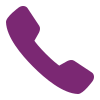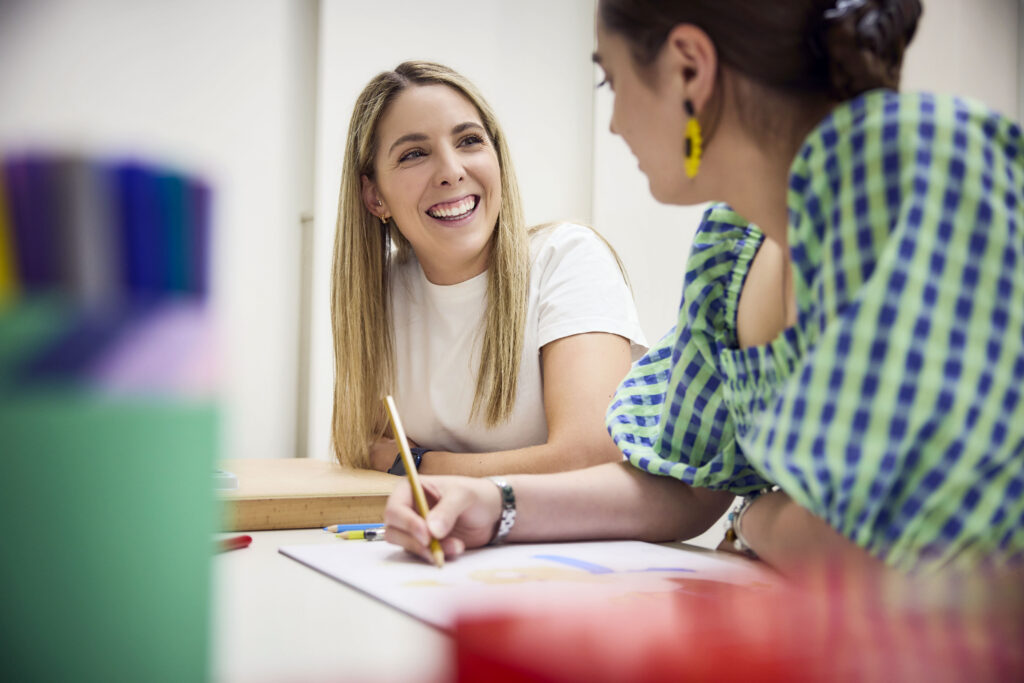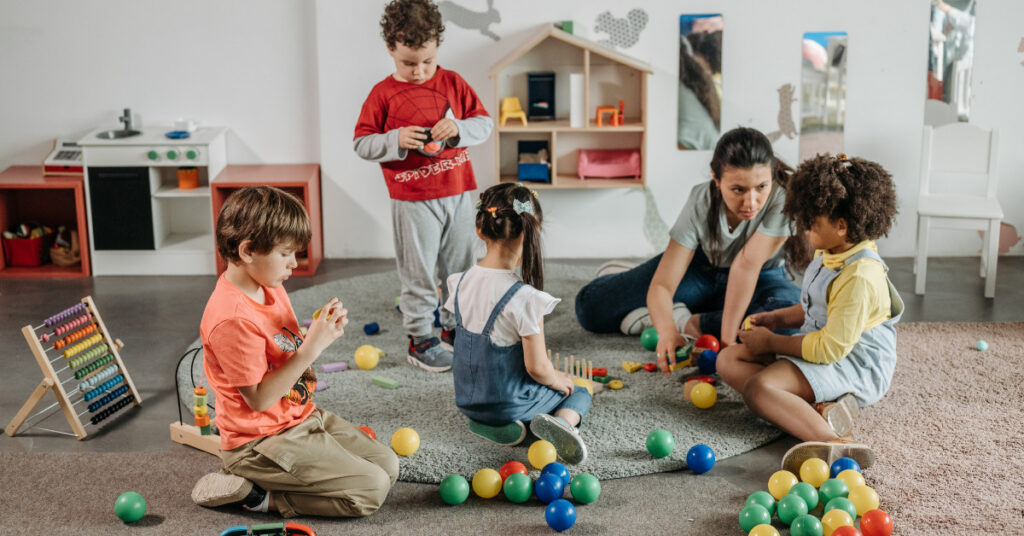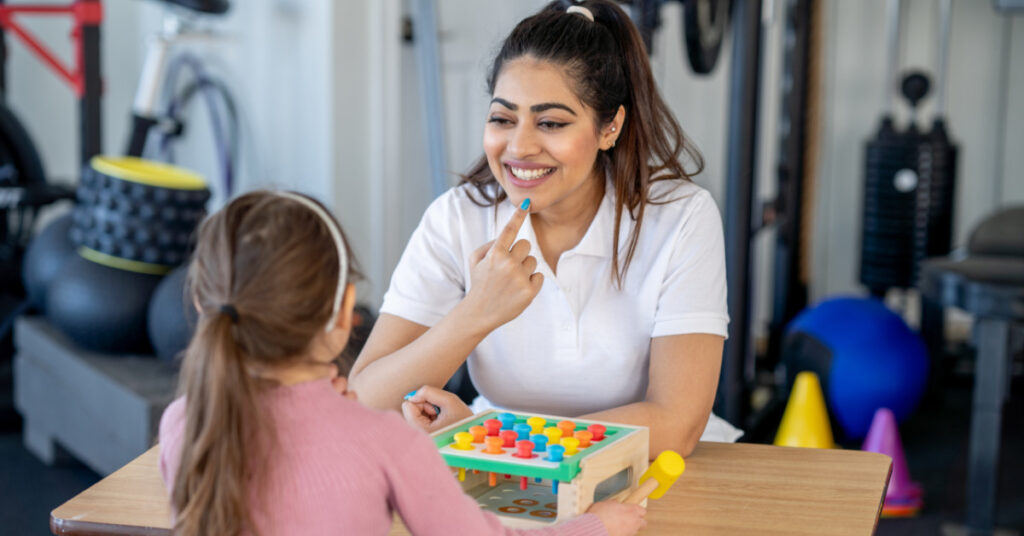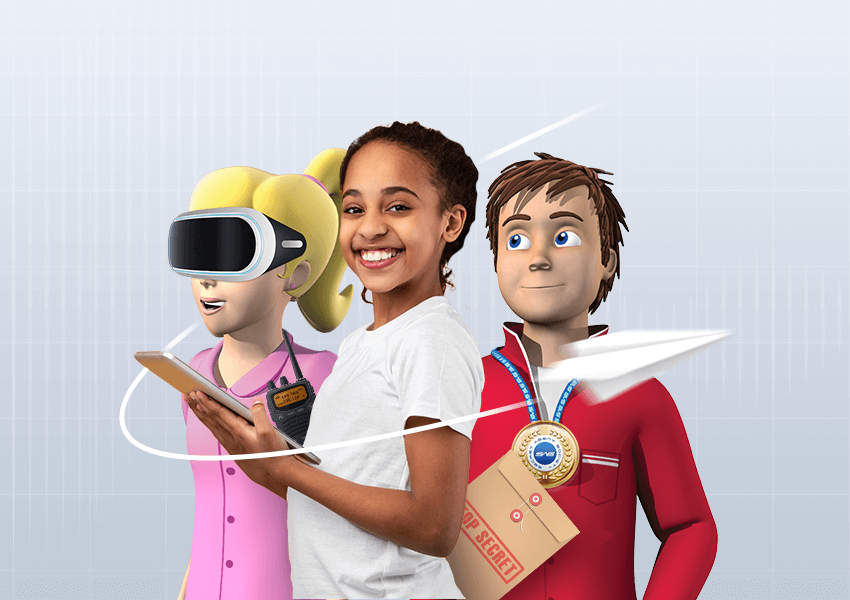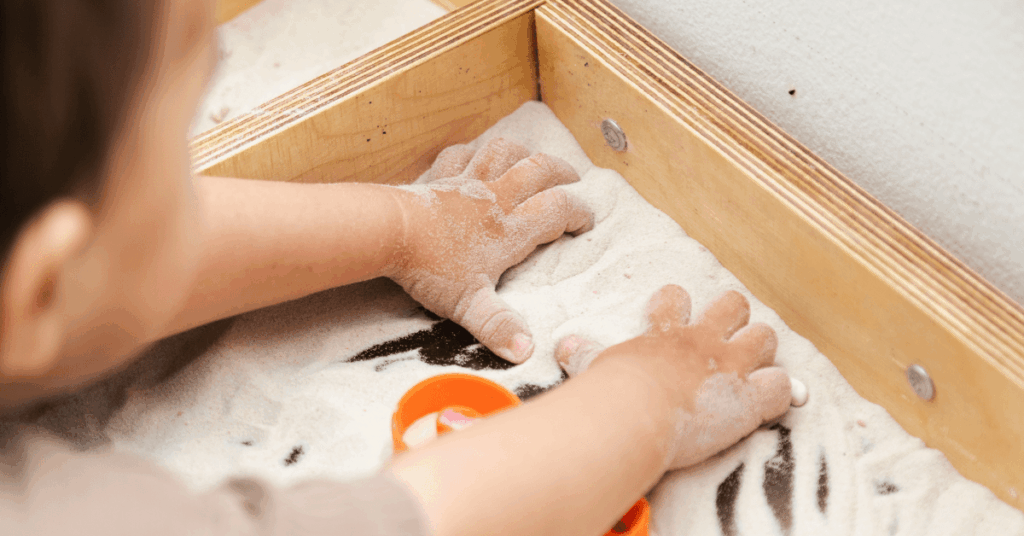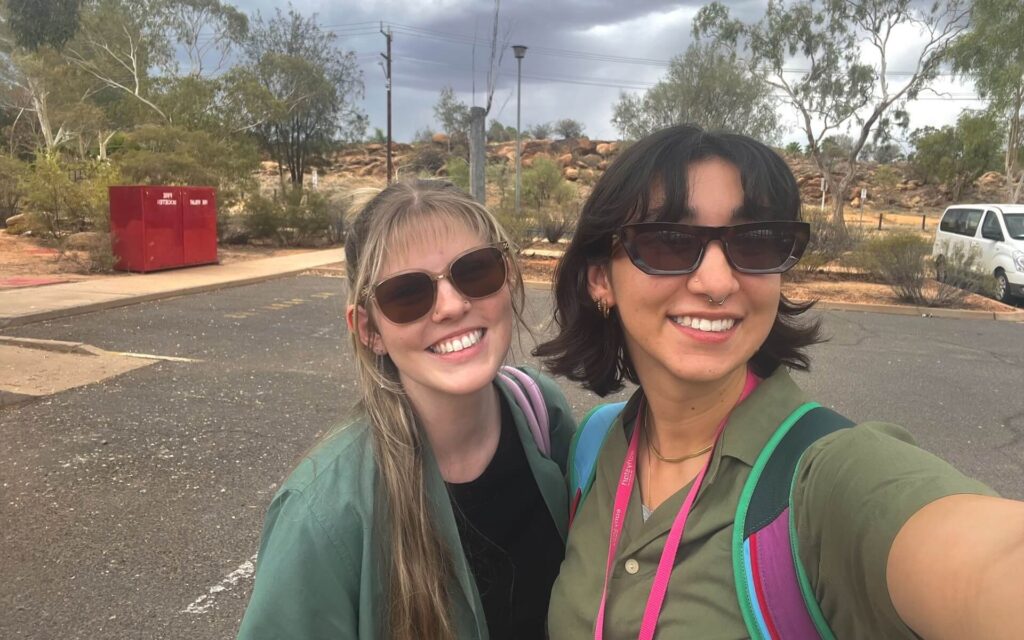Activities to promote language development and communicate skills in children
Do you have growing concerns about your child’s delayed language development?
Or do you feel at a loss about what to do to help your little one better communicate with others?
From the very first stages of your child’s speech development, you’re likely excited for all of the speech development milestones, from the first goo-goo-ga-ga’s to forming full words and sentences.
If you are a parent, it’s only natural to worry about your child’s language development and communication skills.
If you are concerned about your child’s language skills, you aren’t alone.
There is support available, and there are plenty of activities and actions to encourage your little one’s language development.
You don’t have to do it on your own; with early intervention services and assessment, your child can get the help they need to reach their full potential.
There are also plenty of things you can do to support your child at home and encourage their speech development.
Why do language and communication skills matter?
Language development and communication skills are a critical aspect of a child’s overall growth and development.
Not only does it affect their ability to communicate with others, but it also impacts various other areas of their early years.
For instance, language skills help children express and comprehend emotions, think critically, solve problems, and form relationships through appropriate social interactions.
Developing language skills in early childhood is essential because it provides the foundation for learning to read and write.
It’s amazing how much language skills impact a child’s life, from the moment they start babbling to when they’re reading their favourite books.
At every stage, the ability to communicate effectively and understand the nuances of language is crucial.
So, if you’re a parent or caregiver, encourage language development and communication skills in your child as much as possible – it will make a world of difference in their future success.
How language and communication develop in children
The process of language and communication development in children is somewhat complicated, coming from many different sources.
Environmental impact, as well as social interactions, play a large part in the development of language during early childhood.
However, genetic disposition may also play a role in language development and communication skills.
Usually, at around six months, babies begin to make babbling noises (baby talk), where they experiment with different pitches.
Then, at around the 12-month mark, babies may begin to pronounce singular words, such as the classic ‘mum’, ‘dad’, or ‘no’.
At the 18 to 24-month mark, toddlers begin to use two-word combinations to express their needs or wants, such as ‘more water’ or ‘my duck’.
Then at around 2-3 years old, toddlers begin to speak in simple sentences, often neglecting words and grammar.
By 5 years old most children have a grasp on most skills needed to form more complex sentences and understand verbal structure and grammar.
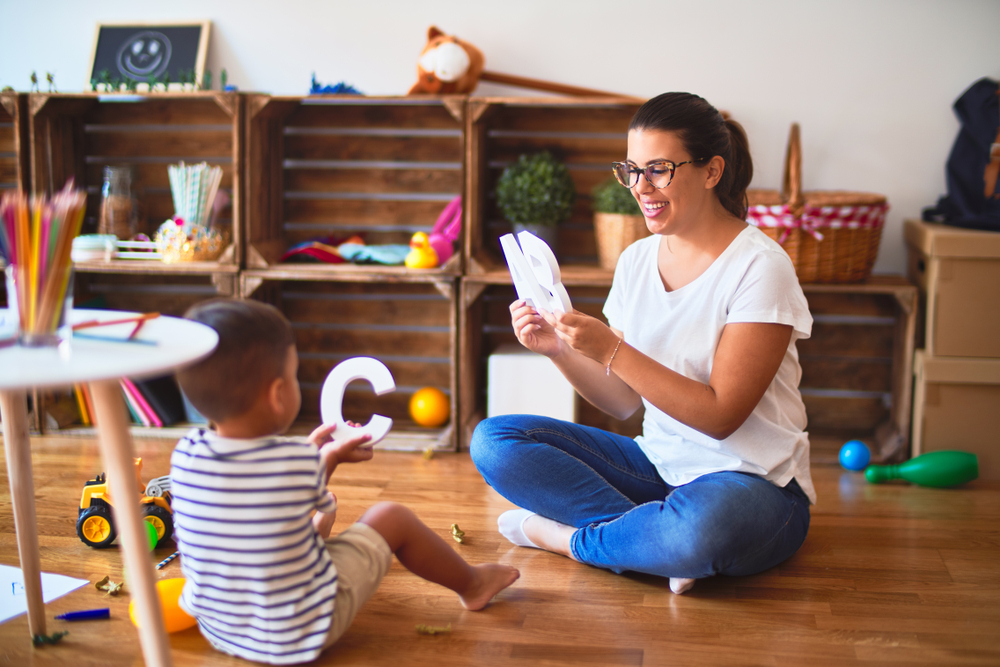
Common signs of language delays or challenges
Every child is different, and naturally, the development of language skills will differ.
So while these signs aren’t to be treated as the be-all end-all, they help indicate that a child may be experiencing some language delays or challenges.
At 6 months
- Your child is not attempting to use eye contact
- Your child does not respond when you call their name
- Your child doesn’t turn to look at objects when you talk about them
At 12-15 months
- Your child isn’t using any gestures like waving goodbye or pointing
- Your child hasn’t begun babbling
- Your child doesn’t play turn-taking games such as peek-a-boo
- Your child isn’t trying to communicate with you when they want something, whether with noise or gestures
At 18 months
- Your child prefers to use gestures rather than verbal communication
- Your child has trouble imitating sounds
- Your child isn’t responding to simple instructions like ‘wave goodbye’ or ‘pass me the cup’
At 2 years old
- Your child doesn’t use around 50 different words
- Your child isn’t able to respond to everyday instructions such as ‘go and get your socks’ or ‘are you hungry?’
- Your child isn’t putting two or more words together
- Your child isn’t producing words on their own but rather copies or imitates others
At 3 years old
- Your child cannot speak in basic sentences
- Your child has trouble following directions
- Your child struggles with articulation
At 4 years old
- Your child cannot recall nursery rhymes
- Your child cannot tell a short story
- Your child cannot form 5 word sentences
At 5 years old
- Your child cannot understand two-part instructions, e.g. ‘Get your shoes and put them in the cupboard’
- Your child cannot use plurals and the past tense correctly
- Your child cannot ask questions using ‘why’ or ‘who’
What activities promote language development and communication skills in infants and toddlers?
The role of parents and caregivers in supporting language development and communication skills at a young age is critical.
Babies and children learn by watching their parents and others in their environment interact with the world.
Below are a few activities to promote language development and communication skills.
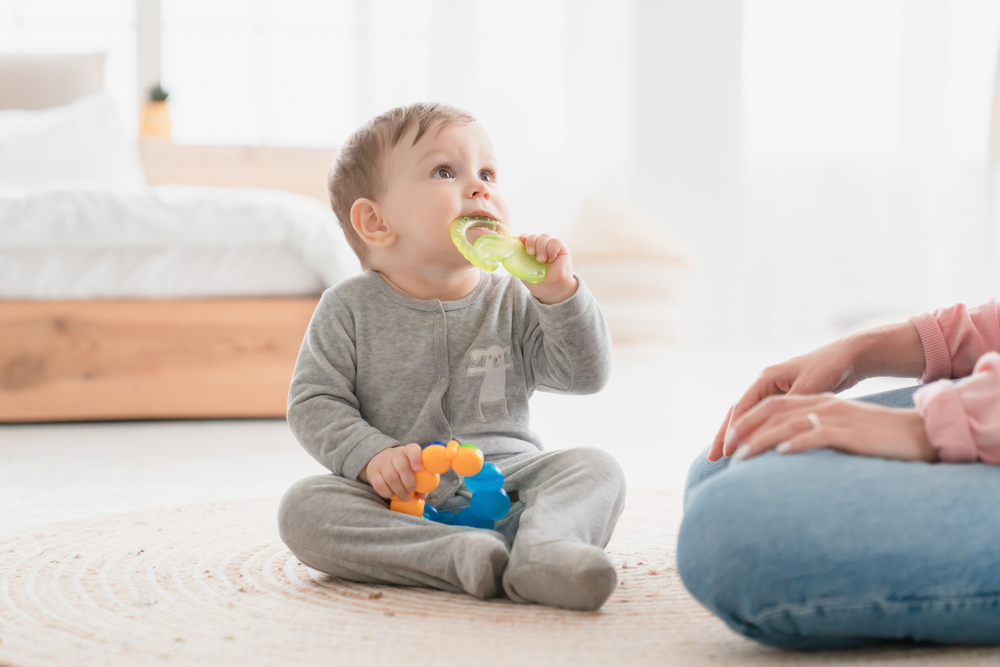
Interacting with your child
From the day they are born, by speaking with your child, making eye contact and making noises, you can help to encourage your child’s language development and communication skills.
The importance of play
Play is so important for developing language skills in early childhood.
By engaging with your little one in games such as peek-a-boo or singing interactive nursery rhymes, you can help them recognise new vocabulary and improve their language development and communication skills.
Reading and storytelling
By being a role model with your use of language to your little ones, you can help them develop their skills. You can read picture books or simply make up stories from the images you see.
Make sure you speak slowly and clearly
It’s important to make sure you speak slowly and clearly.
This will help to lay the foundation for future pronunciation and articulation.
What activities promote language development and communication skills in preschool and school-age children?
Avoid ‘testing’ your child
Children learn best when they aren’t under pressure.
Young children are bound to make mistakes, and they will be able to learn from them best if they aren’t criticised or tested.
Engage with children in meaningful conversations
Children are able to develop conversational skills by learning from the adults around them.
By modelling conversation, using more complicated vocabulary in an accessible way and engaging children in meaningful conversations, you can help to expand their skills.
Read together
Reading with your children is one of the best ways you can aid their language development and communication skills.
Take turns reading; encourage your little one to choose the book and lose yourself in a good read.
Play word games
Children love games.
Promoting language development and communication skills can be made child-friendly by using a game as a format.
For example, ‘Let’s think of words that rhyme with dog’, ‘I spy’, or ‘Foods starting with the letter A’.
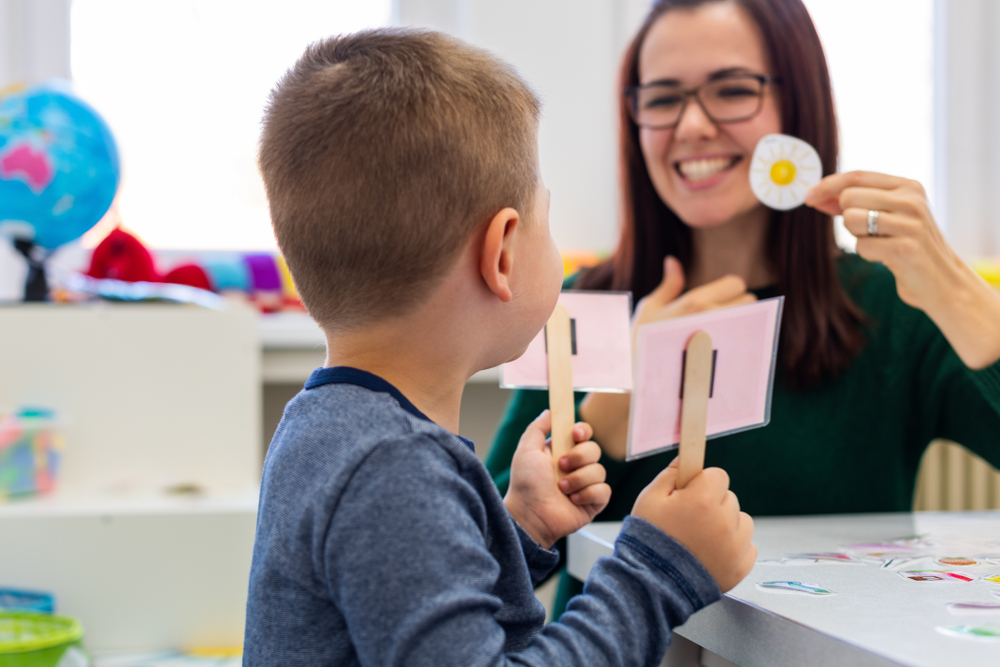
Why book an assessment for language skills?
By booking an assessment to get a professional opinion on the speech development of your little one, you will be provided with a formal diagnosis and have a professional identify which areas of development may need intervention strategies.
Language development and communication activities can help your child to accelerate their speech development and get on the right track to achieving their potential.
How can early intervention services help my child?
Early Start Australia offers speech therapy for kids that is designed to support children and young adults with delayed speech and language.
The support will help build communication, literacy, and social skills.
The speech therapists at Early Start Australia use evidence-based strategies to develop programs for your child.
Every child is different, and that’s why we believe in tailored programs based on the needs and challenges of your child.
Get in touch!
If you suspect your child might be experiencing language delays or challenges and want to take the next step for your baby or child, please feel free to reach out to us at Early Start Australia to book an assessment or enquire about early childhood intervention services such as speech and language pathology.
Our friendly team is also available to answer any questions about what’s best for your little one.
